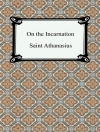How should we believe in God today? If we look beyond our little lives to the vast cosmos, we may even ask: Why all that? And even if we spiritually feel the universe: Why believe any religion? After all, there are many; and haven’t they contributed to the predicament of humanity? Process theology gives provocative answers to these questions: how we are bound by the organic cycles of this world, but how in this web of life God shines even in the last, least, and forgotten event as the Eros of its becoming and as its mirror of greatness; why anything exists: because it is from beauty, for harmony and intensity, and through a consciousness of peace rising from our deepest intuitions of existence. We can change: not only in our thoughts and lives, but even in the way we experience this world. This book introduces such a new way of experiencing, thinking, and living. Based on the fascinating work on cosmology, religion, and civilization of Alfred North Whitehead, this book develops the main theses of process theology and elucidates it as a theopoetics of mutual care for the unexpected, the excluded, the forgotten, and a future society of peace.
Om författaren
Roland Faber is the Kilsby Family/John B. Cobb, Jr., Professor of Process Studies at Claremont School of Theology, the founder and executive director of the Whitehead Research Project, and codirector of the Center for Process Studies. His publications include God as Poet of the World (2008), The Divine Manifold (2014), The Becoming of God (Cascade, 2017), The Garden of Reality (2018), The Ocean of God (2019), Depths As Yet Unspoken (Pickwick, 2020), The Cosmic Spirit (Cascade, 2021), and Divine Appearances (2022).







![Omslag till Brian Schrag & Julisa Rowe: Community Arts for God's Purposes [Chinese] 貼近神心意的社群藝術 Omslag till Brian Schrag & Julisa Rowe: Community Arts for God's Purposes [Chinese] 貼近神心意的社群藝術](https://static.worldofdigitals.com/thumb_webp/740/9781645083740.webp)




